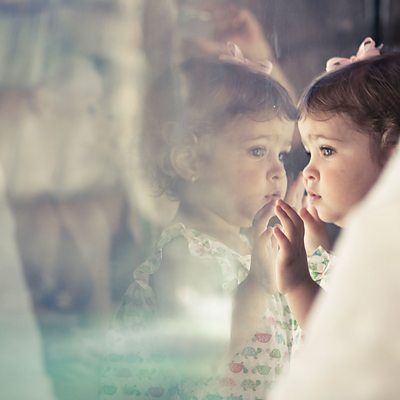Episode details

Radio 4,2 mins
"...those early years carve out and determine so much of what we do as adults." Dr Chetna Kang - 04/07/15
Thought for the DayAvailable for over a year
With the summer holidays just around the corner, parents everywhere are fraught with the question of how to keep the kids busy. As a child I remember playing outside until 10pm during my summer holidays. This is not so prevalent any more. As a parent, I know that smart screens and computer games can seem an appealing option and as a result our children can end up living vicariously through these media. But clinical studies, supported by the personal experiences of many, indicate that excessive habitual time in front of screens effects sleep and concentration - two very important factors for the wellbeing of our children. How we raise our children, the balance between boundaries and freedom, being spoilt vs unnecessarily deprived is a subject that resonates with most of us because we've all been through childhood and are aware of how what might seem like a small thing to an adult, can be a huge deal for a child. Every gesture, every word, every person we encounter, remembered or forgotten has contributed to who we are today. We spend far more time being adults than being children and yet those early years carve out and determine so much of what we do as adults. But when does this all begin? Vedic philosophy and medical science are in agreement that much of our personality is formed by the age of 6 or 7. However, many parents will profess that they noticed their child's personality even as early as infancy. The Srimad Bhagavatam, one of the core Hindu scriptures takes this back even further and talks about how the mindset, attitudes and feelings two people have towards each other at the time of conception has a significant bearing on the nature of the child; and their degree of spiritual awareness will influence the consciousness of the baby. It goes on to discuss the physical development of the foetus in the womb which I personally found alarmingly accurate when I first came across this book 20 years ago while simultaneously studying embryology at medical school. But the essential recommended ingredient is love. When we provide a healthy balance of physical, emotional and spiritual care, fuelled by loving motives, during pregnancy and though out childhood, our children will stand a much better chance of growing up to be adults who can be facilitators of positive growth and change in society. The Family unit, however it is made up, is a microcosmic reflection of wider society and children are an invaluable component and asset. I think if we take into consideration that our responsibility for them can start even as early as conception, then we are more likely to accept them, and love and care for them as a community as well within our own families. We will be less likely to keep them occupied with material things and more likely to give them the time that they need. I have yet to meet an adult who valued the money and toys they received as a child more than the love and time they were given. I for one would not swap that love for anything.
Programme Website